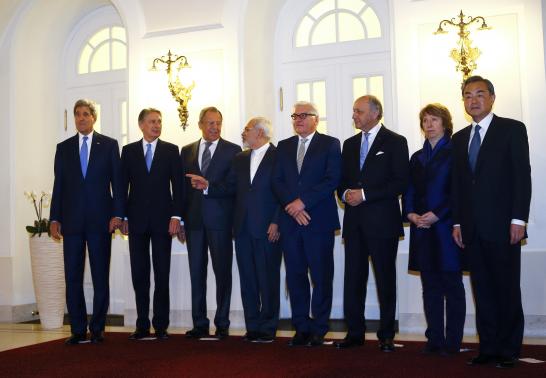 (Reuters) – Iran and six world powers are expected to adjourn nuclear negotiations on Monday and reconvene next month after the latest round of talks failed to clinch a final deal, a source close to the talks said.
(Reuters) – Iran and six world powers are expected to adjourn nuclear negotiations on Monday and reconvene next month after the latest round of talks failed to clinch a final deal, a source close to the talks said.
Details about the adjournment and resumption of negotiations were still being worked out, though the source said on condition of anonymity that Iran could not expect any new sanctions relief for the time being. Possible venues include Vienna and Oman, the source said, though nothing had been decided.
“Some progress has been made,” said a diplomat involved in the talks. “But we need to discuss some issues with our capitals. We will meet again before the new year. This is an ongoing process.”
The talks in Vienna aim for a deal that could transform the Middle East, open the door to ending economic sanctions on Iran and start to bring a nation of 76 million people in from the cold after decades of hostility with the West.
The cost of failure to reach a deal could be high. Iran’s regional foes Israel and Saudi Arabia are watching the Vienna talks nervously. Both fear a weak deal that fails to curtail Tehran’s nuclear ambitions, while a collapse of the negotiations would encourage Iran to become a threshold nuclear weapon state, something Israel has said it would never allow.
It became increasingly clear during a week of intensive negotiations between the top U.S. and Iranian diplomats that what officials close to the talks have been predicting privately for weeks will likely be correct: barring a last-minute decision by Iran to compromise, a final deal is still too far off to hammer out by the parties’ self-imposed deadline later on Monday.
A European official said the possibility of securing a final agreement “seems physically impossible”, echoing comments on Sunday by Iranian officials.
However, Iran’s official IRNA news agency on Monday quoted a source close to the Iranian negotiating team as saying they were still focused on reaching an agreement.
With the deadline just hours away, a possible extension was one of several options for negotiations raised when U.S. Secretary of State John Kerry met Iranian Foreign Minister Mohammad Javad Zarif on Sunday, a senior U.S. official said on condition of anonymity.
The United States, Britain, France, Germany, Russia and China began the final round of talks with Iran on Tuesday to clinch a pact under which Tehran would curb its nuclear work in exchange for lifting economically crippling sanctions.







